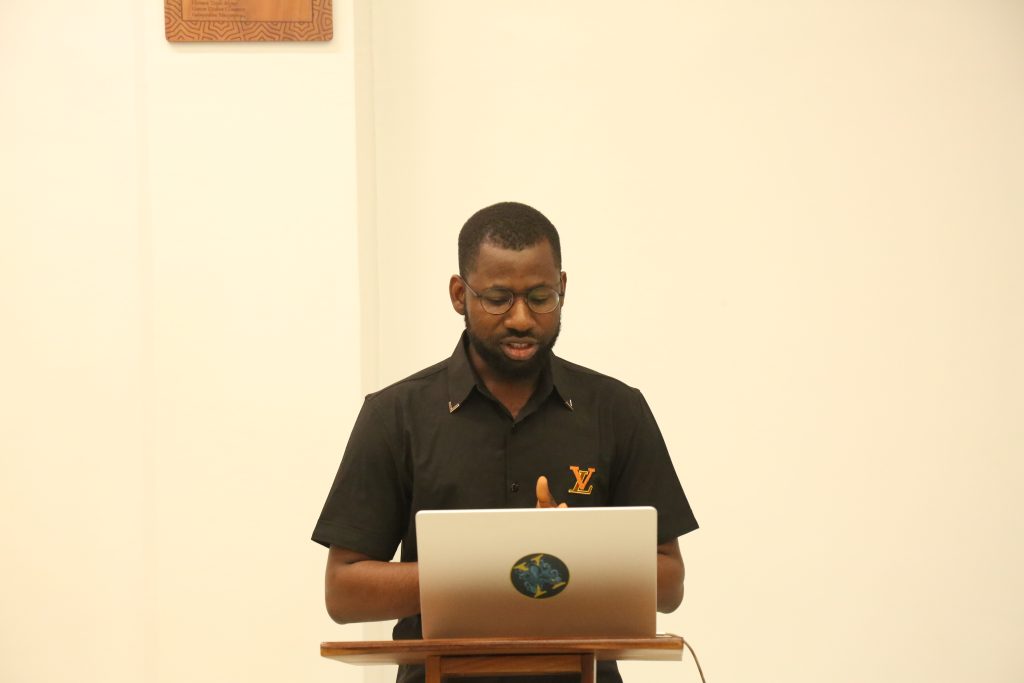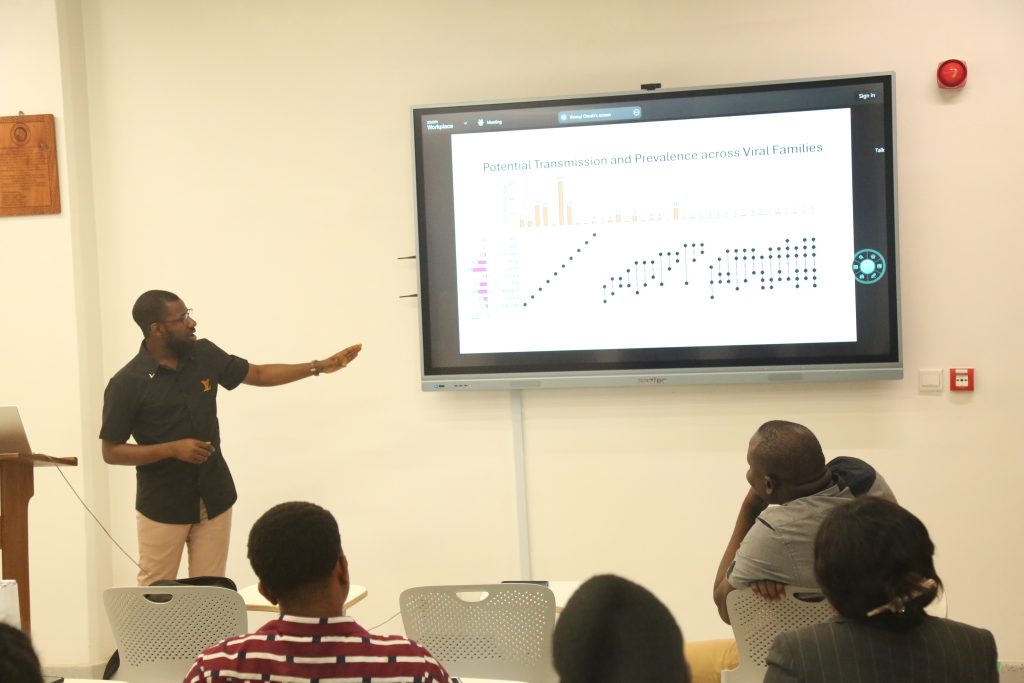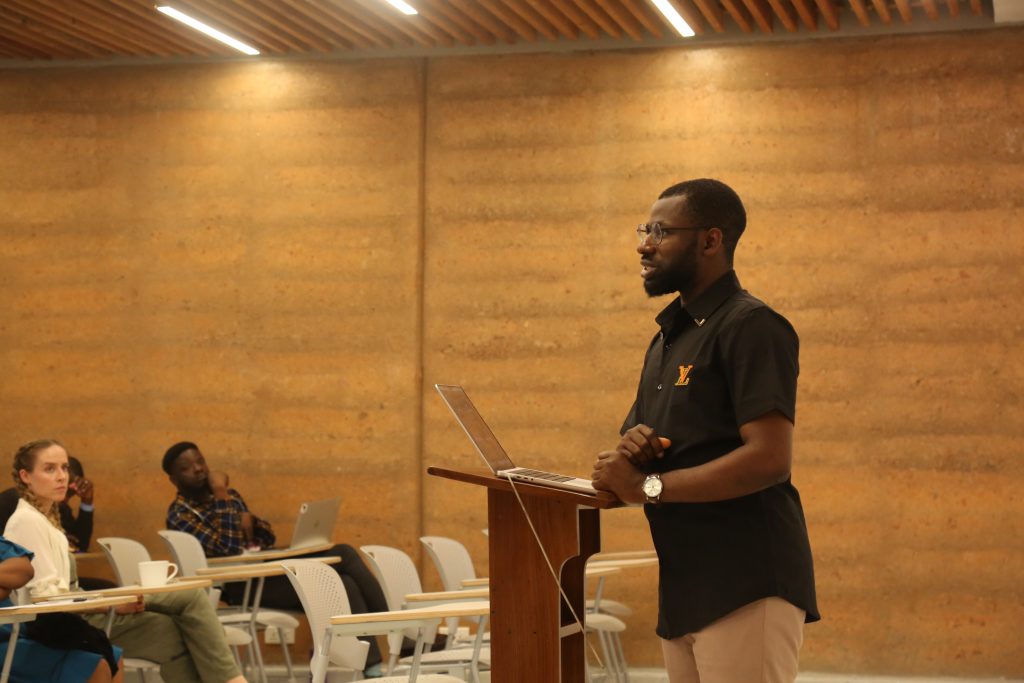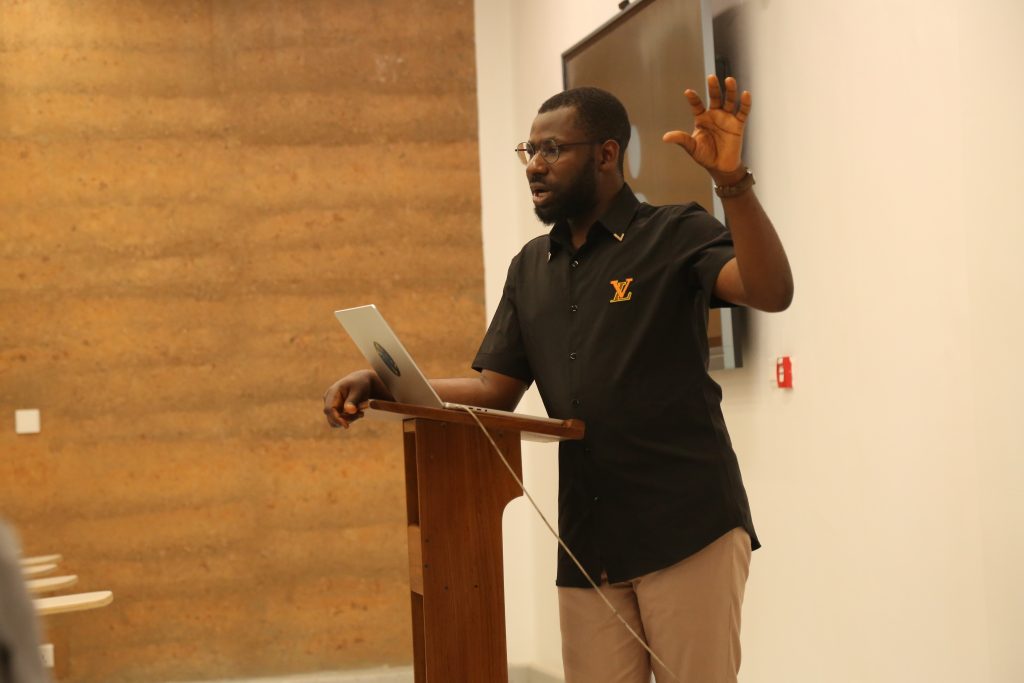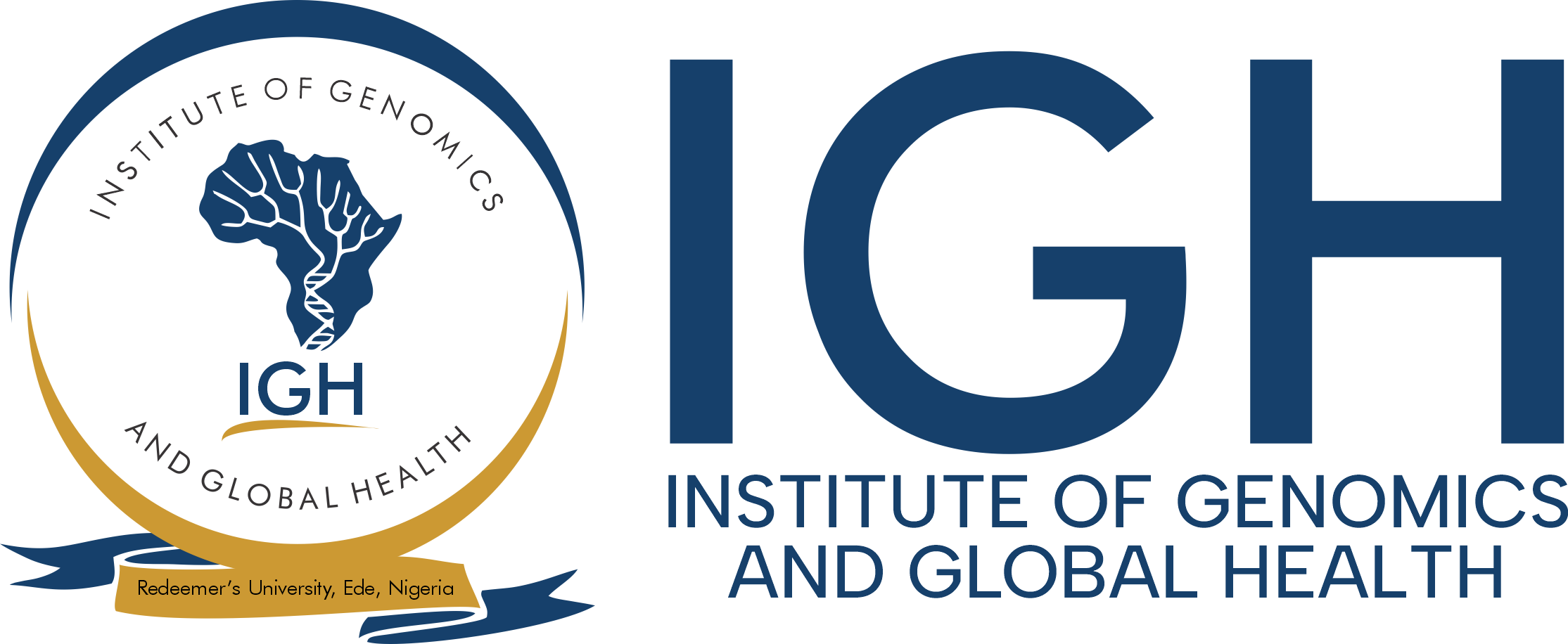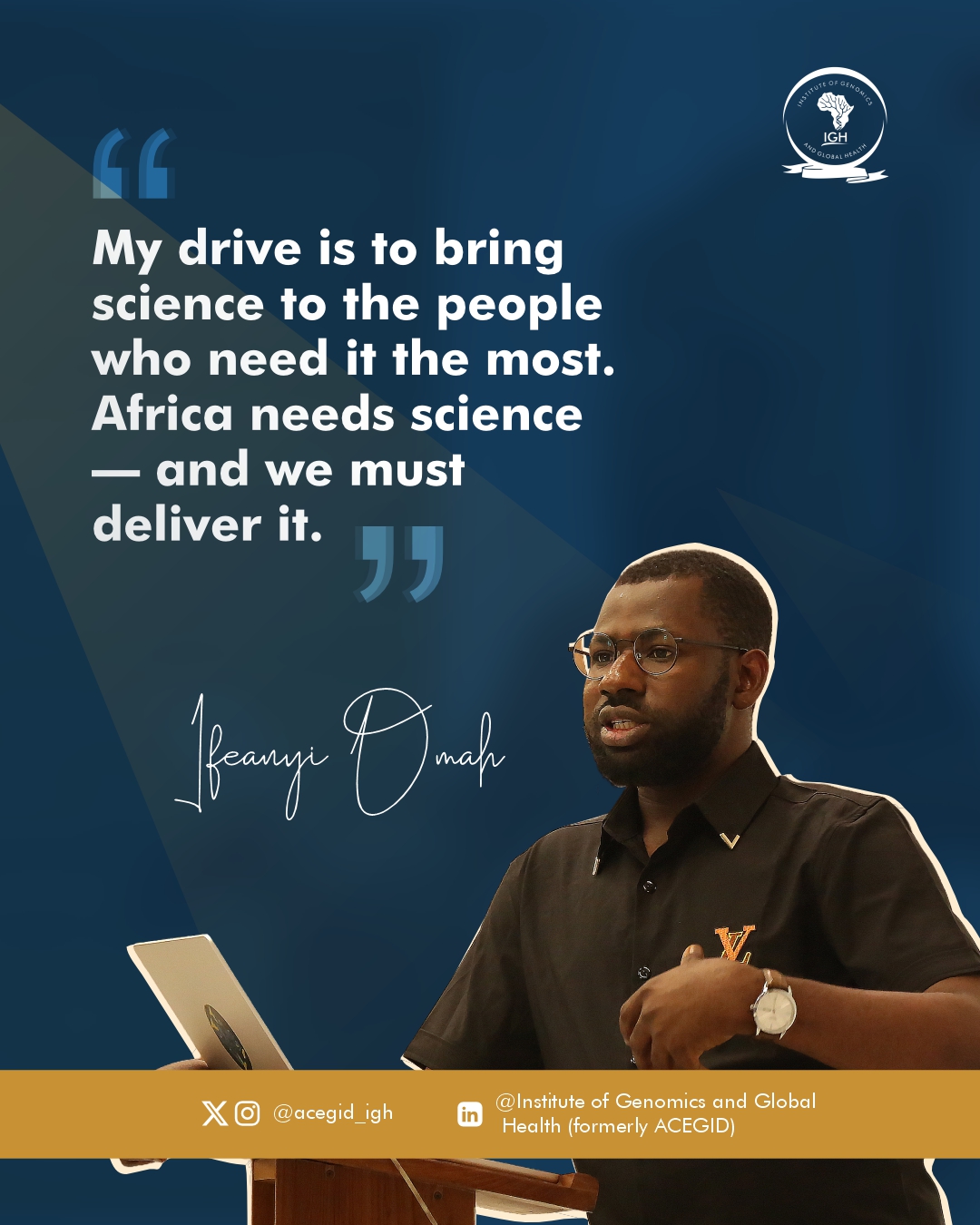In our continued effort and commitment to advancing science that protects populations and prevents future outbreaks, the Institute for Global Health (IGH) was honoured to host Ifeanyi Omah, a PhD student from the University of Edinburgh. His research explores virus evolution, epidemic preemption, and the often overlooked phenomenon of cryptic viral circulation.
Mr Omah’s research centres on understanding how viruses originate, evolve, and spread, particularly those that circulate undetected in human and animal populations. During his visit, he delivered a presentation titled “Towards Epidemic Preemption: Uncovering Cryptic Viral Circulation.” He also shared insights into his study of viral latency and reactivation, with a special focus on the Ebola virus. According to him, survivors of Ebola can harbour the virus in immune-privileged areas of the body, such as the eyes, meninges, or reproductive organs. Over time, the dormant virus may reactivate, posing a renewed threat of outbreak. His goal is to estimate latency timelines and develop strategies that could help interpret future outbreaks and offer better support to survivors.
Beyond Ebola, Mr Omah’s work examines cryptic circulation more broadly. He studies how viruses, though active, often go undetected due to gaps in conventional surveillance. To address this, he employs a powerful combination of modern tools, including Bayesian phylogenetics (with BEAST software), metagenomic next generation sequencing (mNGS), deep learning, and ecological modelling. These tools allow him to trace how viruses move through animal, human, and environmental interfaces, helping predict the risks of future spillover events.
Transitioning from a background in parasitology and entomology, Mr Omah found his passion in computational biology. Though the shift came with challenges, particularly the need to master suite of programming languages, Mathematics and advanced statistics, he views the learning curve as part of the PhD journey. “You make mistakes, you learn, and you grow,” he said, adding that the support of mentors and research communities has been invaluable.
One of those communities is IGH. Mr Omah describes his collaboration with our institute as one of mutual respect and knowledge sharing.
“IGH has become my second home,” he said with a smile. “We don’t just exchange data, we exchange expertise.”
His connection to IGH began when he was introduced to Professor Happi through his supervisor Andrew Rambaut. Since then, he has worked with datasets provided by IGH and even spent time at the institute as an exchange student. Built on mutual trust and the exchange of expertise, knowledge, and experience, their joint efforts are set to produce significant publications. The collaboration, he believes, will only grow stronger.
What drives Mr Omah’s work is more than academic curiosity. It is a commitment to ensure that science reaches the people who need it most.
“My goal is to bring science to Africa,” he said. “To take it out of the academic publications and put it into the hands of those who can use it to save lives.”
Looking ahead, Mr Omah hopes to combine research with policymaking, particularly in the area of pandemic preparedness. He advocates for proactive investments, such as strategic stockpiling vaccines, supporting translational research, and enhancing surveillance systems.
“Pandemics don’t happen overnight. We already understand the warning signs. What we need now is action.”
For young scientists hoping to follow in his footsteps, Mr Omah’s advice is clear. Know your passion, stay committed, and surround yourself with mentors, even if they are your peers. “You don’t have to be like me,” he said. “But if you’re serious about research, work hard, stay focused, and connect with others who share your vision.”
As we wrapped up our conversation, he left us with this powerful parting thought:
“Let us all strive to bring science to the people who need it the most.”
At IGH, we are proud to walk that path alongside scientists like Ifeanyi Omah.
